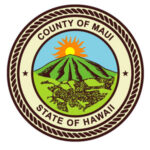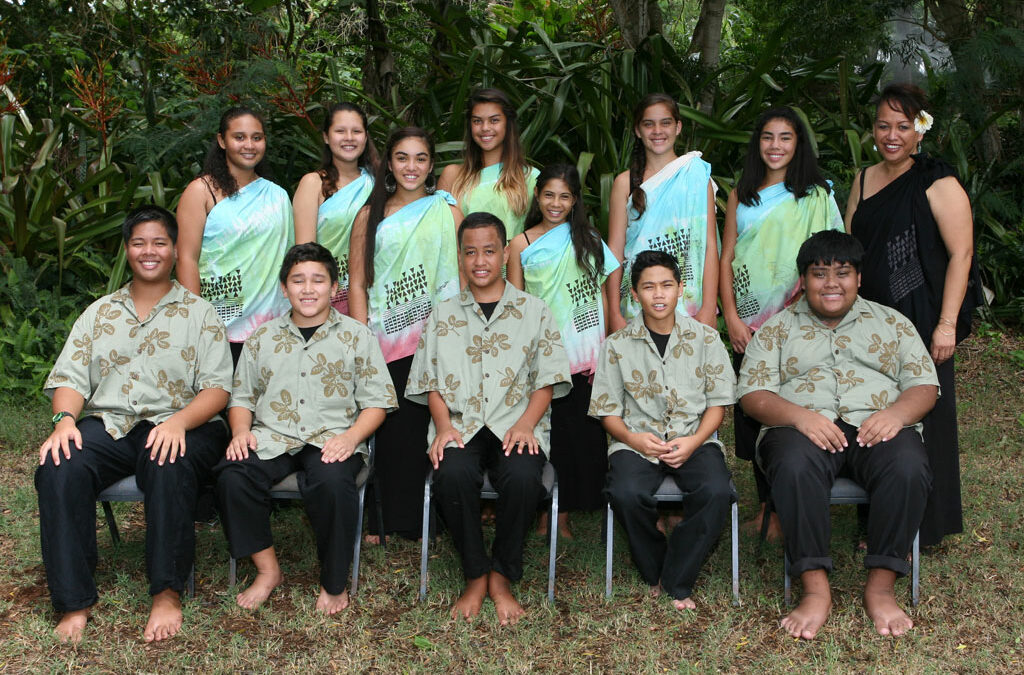
Dec 3, 2015 | Education
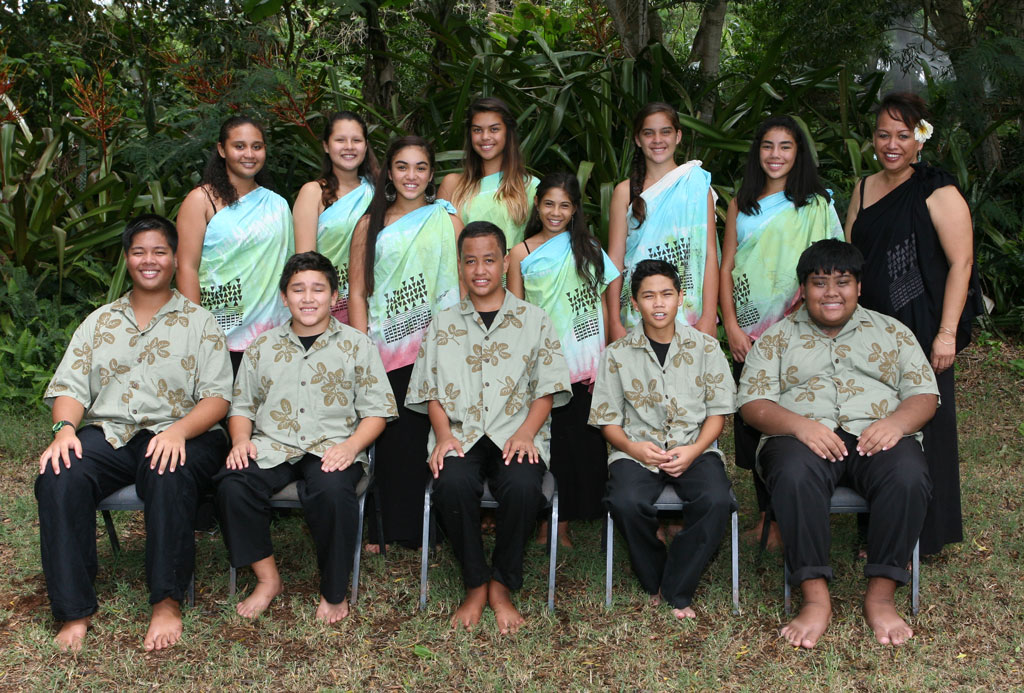
Molokai Middle School recently received an $88,213 grant from the National Oceanic and Atmospheric Administration (NOAA) for a project titled “Promoting Cultural Based Knowledge and Practices through Environmental Stewardship and Preservation.” The grant extends from August 2015 through August 2016. The work is being led by Molokai Middle School Hawaiian Language Immersion Program (HLIP) teacher and principal investigator Iolani Kuoha, with assistance from school staff and community partnerships.
Kuoha, inspired by her father Joseph Hamakua, a Kahuna La`au Lapa`au (medicinal practitioner), wrote this grant to enable students to perpetuate stewardship and develop leadership skills. “Our goal, through science-based outdoor learning projects, is to instill in the students the need for engaging in cultural-based knowledge and preservation efforts on Molokai,” said Kuoha, who was named 2015 Educator of the Year by the Hawaii Association of Middle Schools. “In addition, with a priority in science, technology, engineering and math (STEM) subjects we hope to continually increase our overall school achievement on the Hawai`i State Science Assessment.” The project starts with the students, parents, teachers and community of stakeholders. It includes collaboration, integration of core curriculum with community support, and an island-wide approach to environmental education. The benefits extend to the `aina (land) and the kai (sea) as students learn to protect and restore Molokai’s environment.
The project will include research plans directly related to culture and science through the study of native plant propagation, relevant watershed issues, erosion from ungulates, invasive-species removal and more. Community stakeholders will assist students with their research, written reports, technological tools and oral presentations. The NOAA grant has already helped the school gain recognition as the Most Improved School in the State.
“School partnerships with community organizations enhance the common goals and objectives of this project,” said Kuoha. “Maui Economic Development Board (MEDB) and Women in Technology are among the NOAA partners that are helping all HLIP and other students learn employable skills using STEM resources. We hope to continue mini-workshops with support from MEDB and to present our achievements at their annual STEM Conference on Maui.”
Our goal with the NOAA grant is to instill in the students the need for cultural-based knowledge and preservation efforts on Molokai.
Iolani Kuoha, Molokai Middle School HLIP Teacher

Nov 25, 2015 | Community
 Recently, A Cup of Cold Water (ACCW) Community Care-Van held its 2nd annual gathering to give thanks for the success of its outreach ministry. In October 2013, the four Episcopal churches on Maui, Good Shepherd, Holy Innocents, St. John’s and Trinity-by-the-Sea, moved on the vision of one man. Keku Akana felt called to serve the growing homeless population on the island. It was in that spirit that Akana, retired Maui County Deputy Chief of Police, formed ACCW. At present, a rotating team of volunteers works to improve the situation of the disadvantaged in the community.
Recently, A Cup of Cold Water (ACCW) Community Care-Van held its 2nd annual gathering to give thanks for the success of its outreach ministry. In October 2013, the four Episcopal churches on Maui, Good Shepherd, Holy Innocents, St. John’s and Trinity-by-the-Sea, moved on the vision of one man. Keku Akana felt called to serve the growing homeless population on the island. It was in that spirit that Akana, retired Maui County Deputy Chief of Police, formed ACCW. At present, a rotating team of volunteers works to improve the situation of the disadvantaged in the community.
“Our most important program measure is that we offer nourishment and hope to our fellow citizens and neighbors,” said Akana. “We realize these simple acts of ‘no-strings-attached aloha’ are more necessary than ever. We cannot help everyone, but we can help someone. We are not here to solve poverty; we are here to comfort while we look for ways to minimize poverty and restore human dignity.”
The all-volunteer outreach ministry includes participants from various church groups, Hongwanji missions and those with no particular affiliation. ACCW, making three runs a week, visits Central Maui each Wednesday, Lahaina on Saturdays and South Maui on Sundays. In addition to pantry items, the van delivers clothing and slippers, tarps and towels, first aid and hygiene items, toys and books. ACCW also helps clients locate and maintain partnerships with other Maui County support organizations. The volunteer tasks are varied, including van drivers and riders, storage and distribution room organizers, administrators and others.
ACCW is a shining example of how dedicated people can bring compassion into the public arena to serve the common good. “Many of these people, 600-700 homeless men, women and children each month, have no one to lean on, no one to go to,” said Akana. “Outreach is a boomerang that echoes back into our own lives, reminding us that anyone of us could be that person in need. Unfortunately, homelessness on Maui is increasing, not decreasing.” Please contact ACCW (acupofcoldwatermaui@gmail.com) if you are interested in learning more.
ACCW’s most important program measure is that we offer nourishment and hope to our fellow citizens and neighbors. We cannot help everyone, but we can help someone while we look for ways to minimize poverty and restore human dignity.
Keku Akana, A Cup of Cold Water
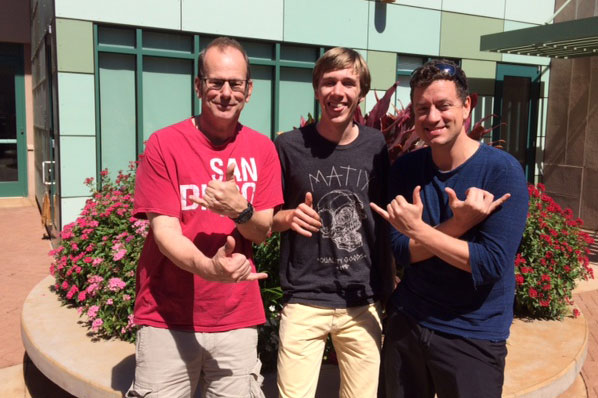
Nov 18, 2015 | Community

Maui Economic Development Board (MEDB) and High Technology Development Corporation sponsored Maui County’s participation in the first statewide, 36-hour, 2015 DevLeague/Uber Hawaii Hackathon. The free event, held October 23rd to 25th, was partnered with Livecoding.tv, an educational streaming platform to connect participants around the state. Ten thousand dollars worth of prizes, and an opportunity to meet with an Uber engineering team in San Francisco, was offered to winning teams in various web-design categories. “This exciting event was a key initiative to continue to grow and connect the developer community and provide valuable skills,” said DevLeague co-founder Russel Cheng. “The weekend-long program and new partnership between DevLeague and Uber enabled participants to come together in both physical and virtual spaces.” The teams collaborated and built web-based transportation applications using Uber’s application programming interface (API) which are protocols and tools for building software applications.
“I’m thankful to MEDB for stepping up to host the Maui location,” said Web Designer Ben Ward. “The event brought entrepreneurs, programmers and designers together to build prototypes, test business ideas, assemble skills, make friends and lose sleep.” Beginning Friday night, participants presented their web and app ideas that could integrate with Uber.
“We ended up with two great projects,” explained Ward. “Ride Guardians, which allows the user to utilize a buddy system that will notify friends about where or when he/she will arrive at the agreed destination. This improves safety and builds trust with the Uber service.” The second project, Nightout, is a quick way for friends to vote on where to spend their night out and get around safely with Uber. “I’m happy to report that Nightout was selected out of nine teams across the state and took the Best Overall Application Award!” exclaimed Ward. “Our winning team, Jordan Amor, Milo Turner, Steve Homer and I, plus all Hawaii participants, proved that tech talent doesn’t just grow in California.” The main sponsor, DevLeague, is a Honolulu-based code boot camp where students can learn to code at a professional level through an intensive hands-on 12-week camp or a 26-week accelerated learning program.
I’m thankful to Maui Economic Development Board for hosting the first statewide, 36-hour, 2015 DevLeague/Uber Hawaii Hackathon on Maui, an event that brought entrepreneurs, programmers, and designers together. The winning Maui team, Jordan Amor, Milo Turner, Steve Homer, and I, plus all Hawaii participants, proved that tech talent doesn’t just grow in California. The Best Overall Application Award went to our app Nightout.
Ben Ward, Maui Web Developer
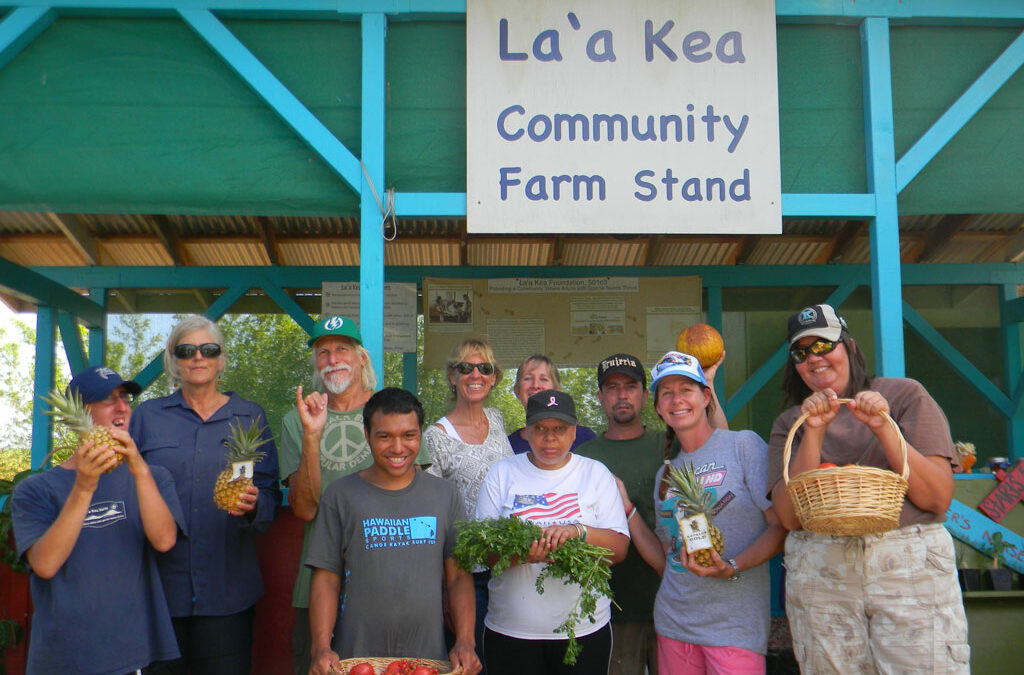
Nov 12, 2015 | Environment, Sustainability
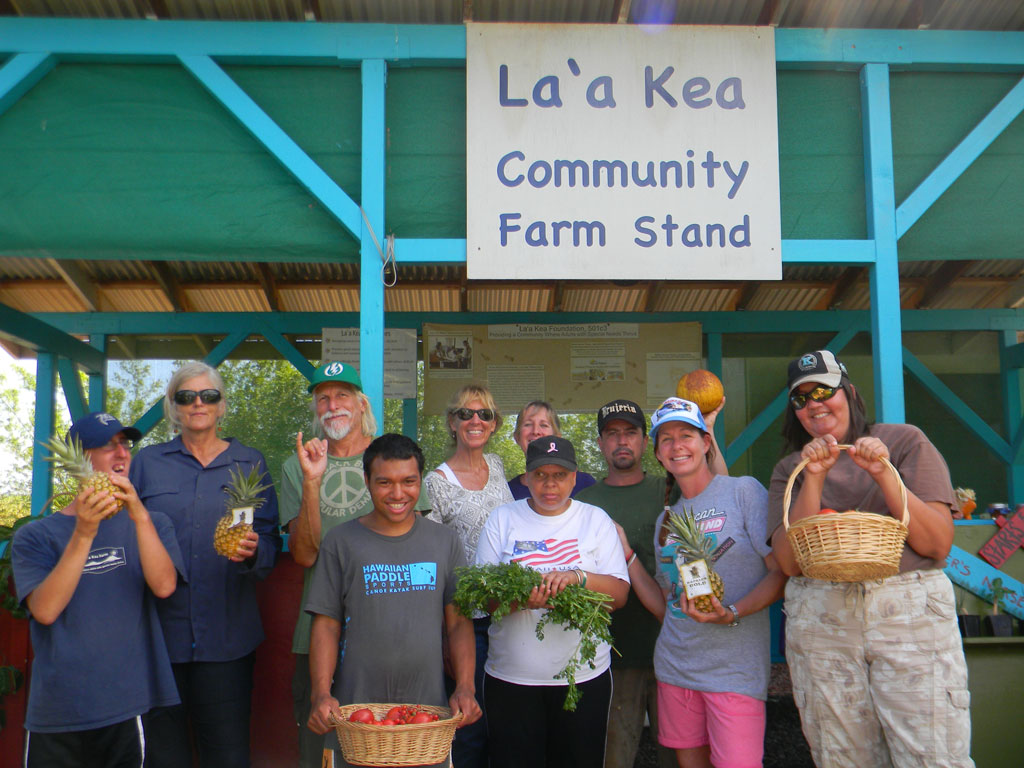 Imagine a place where the community reflects what is important and precious in each member. Imagine a place where the meaningful work that each individual contributes to the community is healing and inspirational. La‘a Kea Farm on Baldwin Avenue in Pa‘ia is that place. Sitting on 12 acres overlooking the ocean, with double rainbows and majestic white clouds, the farm inspires residents and visitors alike. Founded in June 2000, La‘a Kea, a 501(c)(3) nonprofit organization, provides day and residential programs for youth and adults with intellectual and developmental disabilities. It is the first of its kind in the State of Hawai‘i.
Imagine a place where the community reflects what is important and precious in each member. Imagine a place where the meaningful work that each individual contributes to the community is healing and inspirational. La‘a Kea Farm on Baldwin Avenue in Pa‘ia is that place. Sitting on 12 acres overlooking the ocean, with double rainbows and majestic white clouds, the farm inspires residents and visitors alike. Founded in June 2000, La‘a Kea, a 501(c)(3) nonprofit organization, provides day and residential programs for youth and adults with intellectual and developmental disabilities. It is the first of its kind in the State of Hawai‘i.
“Our mission is to create wholeness through education and therapy in extended family living,” said La‘a Kea Executive Director Andrea Hall Rodgers. “Being part of a thriving ‘ohana enables the members to fully unfold their potential and inspire each other. La‘a Kea’s programs include farming, economic ventures and the activities of daily living that come alive in a community with homes, farm buildings, a farmers’ market, cafe, craft studio and more,” said Rodgers. Inspired by the internationally known Camphill Village model, La‘a Kea offers a unique alternative to conventional care. Co-workers, residents and day program participants, regardless of their ability or disability, work in a supportive environment. They are all dedicated to discovering and enhancing the contribution of each individual through productive work.
In 2005, Rodgers presented the La‘a Kea project to Maui County Mayor Alan Arakawa. “It is an exceptional model of organic farming and equitable community living designed specifically for the special-needs community,” she told the mayor. Recognizing the critical need for a community serving one of our most overlooked populations, Mayor Arakawa arranged the first long-term lease ever given to a nonprofit in the history of Maui County.
“During my first administration we realized there was a gap of service when it came to assisting adults, over 18 years old, with physical and mental challenges,” said the mayor. “I am very happy we have programs like La‘a Kea and others that care for our most vulnerable island residents.”
La‘a Kea Farm is an exceptional model of organic farming and equitable community living designed specifically for the special-needs community.
Everyone is invited to the 5th annual La‘a Kea Farm Fall Family Festival and Pie Contest on Sunday, November 15th, 2015 from noon to 4 pm. The event includes food and fun for the entire family with live music, tractor rides, silent auction and more.
Andrea Hall Rodgers, La‘a Kea Executive Director
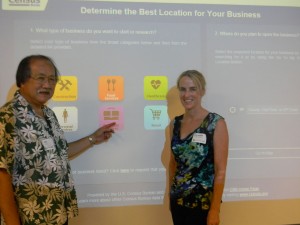
Nov 5, 2015 | Education, Small Business
 A recent seminar presented by Maui Economic Development Board’s (MEDB’s) Technical Assistance Workshop Series provided a hands-on look at apps available from the U.S. Census Bureau to give small businesses and startups the edge in exploring the demographics of potential markets. Jerry Wong, Data Dissemination Specialist for the Census Bureau’s Los Angeles Region, explained that census data allows business owners to research how to start or expand a business. “My intent is to inform individuals here on Maui, particularly entrepreneurs and company representatives, about the new tools that will assist them in the analysis of locations on Maui for business opportunities through looking at the census data for those specific areas,” said Wong. “This training applies to market research, community analysis and planning, grant proposals and general decision-making, all of which involve the use of statistical information.”
A recent seminar presented by Maui Economic Development Board’s (MEDB’s) Technical Assistance Workshop Series provided a hands-on look at apps available from the U.S. Census Bureau to give small businesses and startups the edge in exploring the demographics of potential markets. Jerry Wong, Data Dissemination Specialist for the Census Bureau’s Los Angeles Region, explained that census data allows business owners to research how to start or expand a business. “My intent is to inform individuals here on Maui, particularly entrepreneurs and company representatives, about the new tools that will assist them in the analysis of locations on Maui for business opportunities through looking at the census data for those specific areas,” said Wong. “This training applies to market research, community analysis and planning, grant proposals and general decision-making, all of which involve the use of statistical information.”
“The purpose of this seminar was to add another tool to each participant’s business toolkit,” said Frank De Rego, Jr., Director of Businesss Development Projects at MEDB. “The two new apps created by the U.S. Census Bureau, Census Business Builder and On the Map, along with Knight Ridder’s Census Reporter, now make accessing census data more user-friendly. As these tools are expanded and improved, they will be invaluable for strategic business planning,” said De Rego.
“We recently opened our first gallery here on Maui,” said Lisa Marie Corcoran of National Geographic Fine Arts Galleries in Wailea. “I very much appreciate this great opportunity to learn how to use census data to benefit our customers and community. Specifically, we are very interested in capabilities for exploring the demographics and socioeconomic characteristics of potential markets on-island,” she explained. “While we estimate 80 percent of our market to be tourist-driven, we want to better understand the community we operate in. MEDB and the Visitor Bureau also do a great job of publishing current and historical demographic data.”
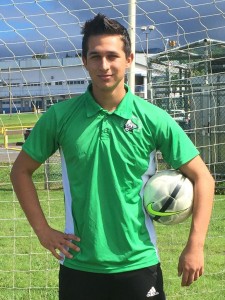
Oct 28, 2015 | Community
 Maui student Keola Paz Paredes, son of a Bolivian immigrant to the United States, has initiated an outstanding mission to help children in Bolivia who play soccer. Paredes, a senior on the Kamehameha High School soccer team in Pukalani, has been playing soccer since he was a young child. “I first got the idea for my project when I was 11 years old,” Paredes explained. “My family and I brought soccer shoes for three children belonging to the woman who helped in my grandmother’s house in Bolivia. When the kids tried on the shoes they had massive smiles on their face, a joy almost like nothing I had seen before. I got this amazing feeling of pride knowing I had helped to give that to them.”
Maui student Keola Paz Paredes, son of a Bolivian immigrant to the United States, has initiated an outstanding mission to help children in Bolivia who play soccer. Paredes, a senior on the Kamehameha High School soccer team in Pukalani, has been playing soccer since he was a young child. “I first got the idea for my project when I was 11 years old,” Paredes explained. “My family and I brought soccer shoes for three children belonging to the woman who helped in my grandmother’s house in Bolivia. When the kids tried on the shoes they had massive smiles on their face, a joy almost like nothing I had seen before. I got this amazing feeling of pride knowing I had helped to give that to them.”
A few years later, Keola and his family went to Bolivia with about 50 pairs of shoes and a bunch of other miscellaneous equipment and brought it to a barrio neighborhood in the upper reaches of La Paz. “When we got there, the children had their faces pressed up against the gate which surrounded the concrete field they played on. The best part was, they didn’t even know we were bringing them anything, they just thought we were going to play soccer with them,” Paredes exclaimed. “Needless to say, when we started handing out the gear, the children went wild! It was then that I realized how many people I could impact and I wanted to do even more.”
Paredes, realizing what he wanted to do next, recently collected 100 cleats and nine suitcases full of equipment from soccer teams around Maui, including brand new uniforms from the American Youth Soccer Organization. “I am currently working on a short documentary about the current situation in Bolivia and already have a confirmed TV channel to show it on. I’m going to advertise the need for good soccer gear and ask for more donations to keep the project running for years to come. I’d like to leave a lasting impact on the children in Bolivia.” To help Paredes, email keola@gmail.com.
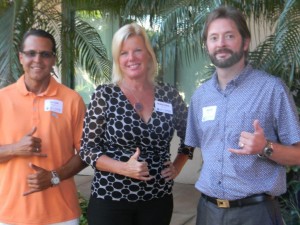
Oct 21, 2015 | Small Business

Do you need capital to grow your company and achieve success?
Come learn from experts in the venture capital industry about how to attract needed venture capital to expand and grow your business. The focus of discussion will be on Silicon Valley-style venture funds. You will gain insights into what venture funds expect in an investment; what motivates them internally and externally; how to secure a meeting with a venture fund; how to prepare for a meeting with a venture fund; and how to structure your company to attract venture capital.
What you will learn
- What is venture capital?
- Why should I seek venture capital?
- How does venture capital work?
- How do I raise venture capital?
- How do I prepare my company for venture capital?
- What are other benefits of having a venture fund invest in my company?
- How do I connect with venture funds?
- What types of returns do their investors expect?
- What type of business models attract venture capital?
- How do I value my company?
- What are the pros and cons for Hawaii companies?
- How do I know that I’m getting a fair deal?
- How do I select a venture capital firm?
The workshop will be Thursday, September 24, 2015, from 9:30 am to 2:15 pm at MEDB’s Malcolm Center, 1305 N. Holopono St. in Kihei. Cost of the workshop is $20. Lunch will be provided. Space is limited, and reservations are required. Click here to register: https://hightechmaui.com/confregister/form-venturecapital.cfm
For more information, contact: Frank De Rego, Jr. MEDB Director of Business Development Projects, frank@medb.org, (808)270-6807.
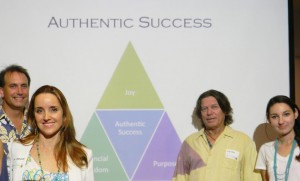
Oct 14, 2015 | Small Business
By popular demand, Maui Economic Development Board (MEDB) offered two days of the workshop “Minding Your Own Business: Entrepreneurial Psychology Basics and You.” The workshop, part of MEDB’s Technical Assistance Series, is a grassroots effort to help small businesses establish strong systems, processes, tools and best practices to build a solid foundation for success. The Psychology Basics workshop, led by psychologist Dr. Jennifer Johnston-Jones, helped attendees explore their own personal approach to business creation through the double lens of neuroscience and psychology. Through hands-on interactive activities, participants rediscovered their strength, perseverance, and creativity by overcoming perceived limits, and then applied these hard-won lessons in building their businesses.
 “During this seminar, attendees experienced live coaching and personalized attention, increased self-awareness, authentic networking, community-building, a possible breakthrough, and laughter and fun,” said Frank De Rego Jr., director of Business Development Projects at MEDB. “We encouraged all entrepreneurs to attend and learn from Dr. Johnston-Jones about how they can realize their potential.”
“During this seminar, attendees experienced live coaching and personalized attention, increased self-awareness, authentic networking, community-building, a possible breakthrough, and laughter and fun,” said Frank De Rego Jr., director of Business Development Projects at MEDB. “We encouraged all entrepreneurs to attend and learn from Dr. Johnston-Jones about how they can realize their potential.”
Dr. Johnston-Jones is an internationally acclaimed speaker, psychologist, executive coach and expert in the psychology of success. She is the founder and CEO of EntrepreneurShift, an app and live-event program which shifts the paradigm from a wealth-based model of success to authentic success via modern neuroscience. “I teach people actionable life-changing steps that accelerate their path toward financial freedom paired with purpose and joy,” said Dr. Johnston-Jones. “With every level of success there is another level of success just beyond the horizon that requires thought, decisions and actions that a coach can help you accelerate or think through.”
“As a business owner, I’m focused and motivated, but I don’t always make time for strategic thinking because I’m busy serving clients and running the business,” said workshop participant Dr. Steven King. “It’s imperative that we learn how to work with the community. Psychological relations have to be understood and this workshop helped me think more strategically about that aspect. It was invaluable!”
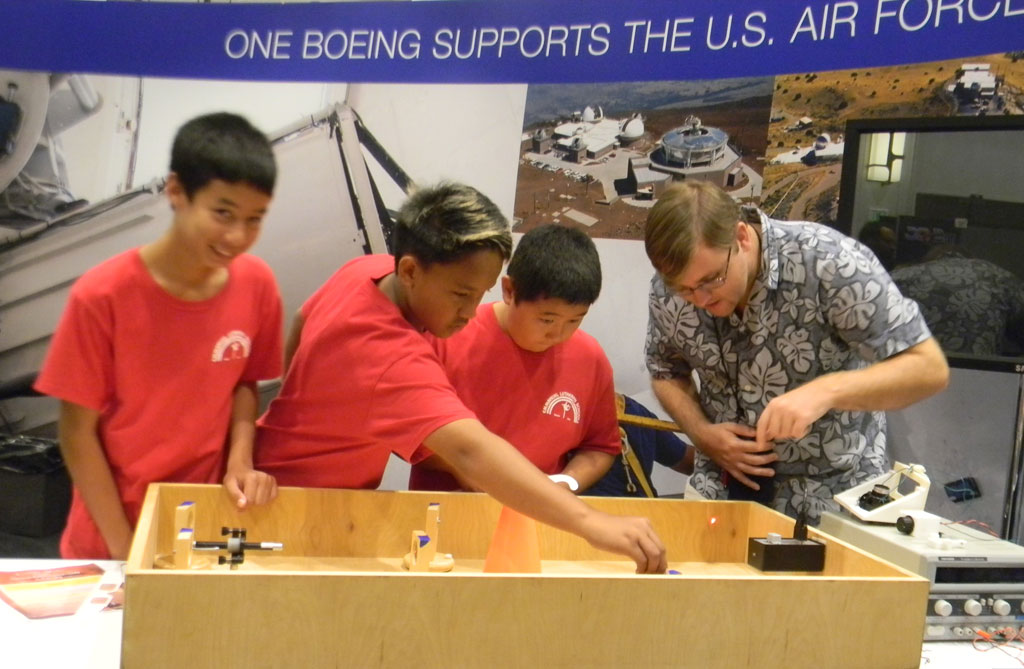
Oct 9, 2015 | Environment, Events
 The 16th annual Advanced Maui Optical and Space Surveillance Technologies Conference (AMOS) was held in September in the culturally rich setting of the Wailea Marriott Resort and Spa. Presented by Maui Economic Development Board and numerous sponsors, the four-day event is known as the top scientific conference in the field of optics and imaging for the surveillance of space. The conference brought together scientists from around the world to offer updates and assessments of current research in the fields of space situational awareness (SSA), space weather and related specialties in astronomy. SSA refers to knowledge of the space environment and the natural and man-made objects in orbit around the Earth.
The 16th annual Advanced Maui Optical and Space Surveillance Technologies Conference (AMOS) was held in September in the culturally rich setting of the Wailea Marriott Resort and Spa. Presented by Maui Economic Development Board and numerous sponsors, the four-day event is known as the top scientific conference in the field of optics and imaging for the surveillance of space. The conference brought together scientists from around the world to offer updates and assessments of current research in the fields of space situational awareness (SSA), space weather and related specialties in astronomy. SSA refers to knowledge of the space environment and the natural and man-made objects in orbit around the Earth.
The Boeing Company, AMOS’s main sponsor, recognizes the need for the future generation to get involved in all areas of space exploration and technological solutions. “Our Global Corporate Citizenship program, which originated on Maui in 2005, continues to contribute to community educational and environmental programs,” said Jerry Cornell, Boeing Site Executive. “AMOS provides a great opportunity for our Boeing experts to engage with Maui County students.”
The students, introduced to space technologies via exhibits and hands-on projects, had the opportunity to meet industry professionals and learn valuable lessons in science, technology, engineering and math subjects. “I learned so much at AMOS and the Boeing exhibits,” said Raider Howard, Lokelani Intermediate 8th grader. “Satellites continue to make a big impact on our community and in the world. We need new technology now and in the future for national security, internet, banking, telephones, television, navigation, scientific exploration and more.”
At Boeing’s simulated optics exhibits, students learned how light is transmitted from the collection points of the large 3.6-meter Haleakala summit telescope, via mirrors to an engineered optics table. Students were tasked to redirect light from a pen laser source, using up to five mirrors, onto moveable pucks, and finally to an optic sensor that buzzed when the laser light touched it. A 3D-printed fast-steering mirror was installed on the simulated optics table, making the laser light bounce off the steering mirror first. That mirror had separate controls, so student teamwork was required to complete the assigned task. “The experiments at AMOS were really interesting,” said Howard. “I might want to be an astronomer.”
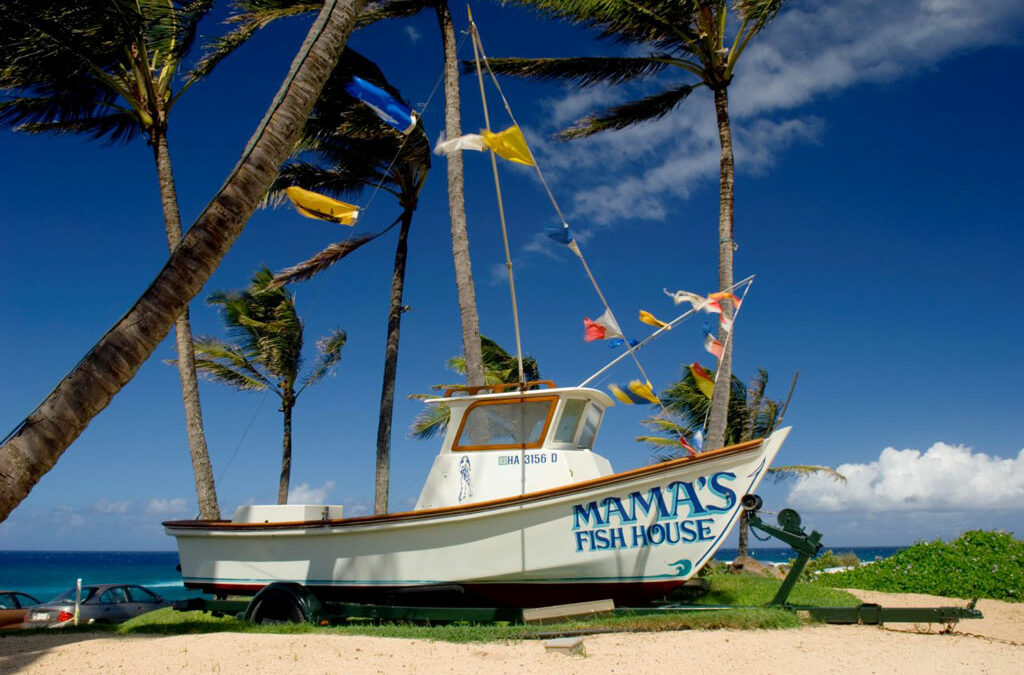
Sep 30, 2015 | Community, Environment, Sustainability
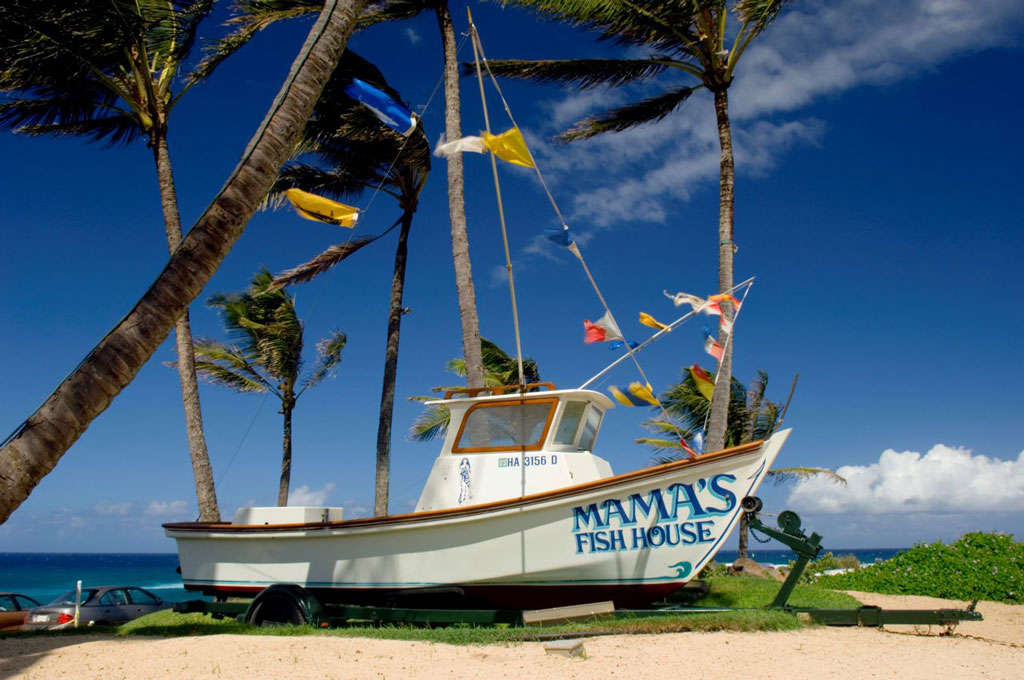 Mama’s Fish House, family-owned by Floyd and “Mama” Doris Christenson, has been buying fish directly from Maui fisherman for over 40 years. These local fishermen, representing a way of life, culture and tradition in Hawai’i, consistently deliver the freshest and finest local Maui seafood. In May 2013, Mama’s Fish House, in cooperation with Maui fishermen and the Western Pacific Regional Fishery Management Council (Wespac), funded and deployed the first of two fishing buoys approximately 30 miles off the northeast shore of Maui. The buoys are technically called a Fish Aggregation Device (FAD) and are anchored to the seafloor at a depth of over 1500 ft. “They are located in deep, off-shore waters that are habitat for pelagic species such as tuna, mahi-mahi, ono, and billfish,” said Mama’s Fish House Marketing Director Karen Christenson. “The concept of a FAD is a small platform or skiff that is anchored to the ocean floor, with a GPS beacon for tracking,” Christenson explained. “The floating buoy attracts the fish, offering some protection for smaller fish that, in turn, attract larger predator fish.”
Mama’s Fish House, family-owned by Floyd and “Mama” Doris Christenson, has been buying fish directly from Maui fisherman for over 40 years. These local fishermen, representing a way of life, culture and tradition in Hawai’i, consistently deliver the freshest and finest local Maui seafood. In May 2013, Mama’s Fish House, in cooperation with Maui fishermen and the Western Pacific Regional Fishery Management Council (Wespac), funded and deployed the first of two fishing buoys approximately 30 miles off the northeast shore of Maui. The buoys are technically called a Fish Aggregation Device (FAD) and are anchored to the seafloor at a depth of over 1500 ft. “They are located in deep, off-shore waters that are habitat for pelagic species such as tuna, mahi-mahi, ono, and billfish,” said Mama’s Fish House Marketing Director Karen Christenson. “The concept of a FAD is a small platform or skiff that is anchored to the ocean floor, with a GPS beacon for tracking,” Christenson explained. “The floating buoy attracts the fish, offering some protection for smaller fish that, in turn, attract larger predator fish.”
“FADs have proven to be a successful sustainable food source while reducing transit times and fuel costs for fishermen,” said Mama’s Fish House Executive Chef Perry Bateman. While the State of Hawaii maintains a network of FADs across the islands with the objective of providing recreational fishing opportunities, Mama’s FAD is different. “It is the first buoy funded by a private business to support the fishermen and Wespac’s research,” Chef Perry said.
Recognizing that data collection is critical to ensuring sustainability for local Hawai’i fish stocks, Mama’s Fish House encourages fishermen to submit their catch reports to the State of Hawai’i and Wespac. “Having accurate reports is being pono, doing the right thing, and perpetuating our culture of fishing,” said Chef Perry. He added that all Hawai’i-licensed fishermen can fish at Mama’s Fish House funded buoys and sell their catch to anyone. “The goals of community FAD projects are to increase fishing opportunities and cooperative research, and to provide community benefits.”





 Imagine a place where the community reflects what is important and precious in each member. Imagine a place where the meaningful work that each individual contributes to the community is healing and inspirational. La‘a Kea Farm on Baldwin Avenue in Pa‘ia is that place. Sitting on 12 acres overlooking the ocean, with double rainbows and majestic white clouds, the farm inspires residents and visitors alike. Founded in June 2000, La‘a Kea, a 501(c)(3) nonprofit organization, provides day and residential programs for youth and adults with intellectual and developmental disabilities. It is the first of its kind in the State of Hawai‘i.
Imagine a place where the community reflects what is important and precious in each member. Imagine a place where the meaningful work that each individual contributes to the community is healing and inspirational. La‘a Kea Farm on Baldwin Avenue in Pa‘ia is that place. Sitting on 12 acres overlooking the ocean, with double rainbows and majestic white clouds, the farm inspires residents and visitors alike. Founded in June 2000, La‘a Kea, a 501(c)(3) nonprofit organization, provides day and residential programs for youth and adults with intellectual and developmental disabilities. It is the first of its kind in the State of Hawai‘i.





 Mama’s Fish House, family-owned by Floyd and “Mama” Doris Christenson, has been buying fish directly from Maui fisherman for over 40 years. These local fishermen, representing a way of life, culture and tradition in Hawai’i, consistently deliver the freshest and finest local Maui seafood. In May 2013, Mama’s Fish House, in cooperation with Maui fishermen and the Western Pacific Regional Fishery Management Council (Wespac), funded and deployed the first of two fishing buoys approximately 30 miles off the northeast shore of Maui. The buoys are technically called a Fish Aggregation Device (FAD) and are anchored to the seafloor at a depth of over 1500 ft. “They are located in deep, off-shore waters that are habitat for pelagic species such as tuna, mahi-mahi, ono, and billfish,” said Mama’s Fish House Marketing Director Karen Christenson. “The concept of a FAD is a small platform or skiff that is anchored to the ocean floor, with a GPS beacon for tracking,” Christenson explained. “The floating buoy attracts the fish, offering some protection for smaller fish that, in turn, attract larger predator fish.”
Mama’s Fish House, family-owned by Floyd and “Mama” Doris Christenson, has been buying fish directly from Maui fisherman for over 40 years. These local fishermen, representing a way of life, culture and tradition in Hawai’i, consistently deliver the freshest and finest local Maui seafood. In May 2013, Mama’s Fish House, in cooperation with Maui fishermen and the Western Pacific Regional Fishery Management Council (Wespac), funded and deployed the first of two fishing buoys approximately 30 miles off the northeast shore of Maui. The buoys are technically called a Fish Aggregation Device (FAD) and are anchored to the seafloor at a depth of over 1500 ft. “They are located in deep, off-shore waters that are habitat for pelagic species such as tuna, mahi-mahi, ono, and billfish,” said Mama’s Fish House Marketing Director Karen Christenson. “The concept of a FAD is a small platform or skiff that is anchored to the ocean floor, with a GPS beacon for tracking,” Christenson explained. “The floating buoy attracts the fish, offering some protection for smaller fish that, in turn, attract larger predator fish.”